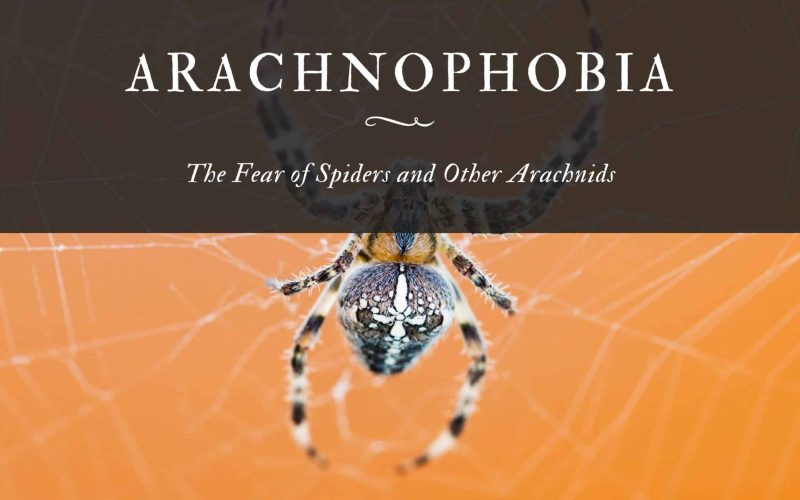Not all of us do well with insects around us. So, if you are scared to death each time you see a spider or watch one in a movie or a picture, there might be some explanation for your fear.
An estimated five out of every 100 people living in the United States of America have one or more phobias, with American women slightly more likely to get a phobia than men.
One of the most common phobias that children and adults have is arachnophobia.
Arachnophobia Definition
Arachnophobia derives from the Greek word “Arachne,” which means spider, and “Phobos,” which is the Greek word for fear.
It is believed that the deep concern of spiders and any other eight-legged arachnids (such as scorpions) may be an evolutionary response rather than an overreaction: spiders, especially the ones that are poisonous, have long been connected to illness and infections.
Humans are aware that many species of spiders bite and are very poisonous. This knowledge is available from direct experience, biology, science, TV, and watching other people get bitten by one.
Therefore, when humans see a spider near them or feel like one is close, a natural response is to become afraid and avoid the spider.”
In many people, the phobia for this creepy crawlies triggers a “disgust response.” People with severe cases of arachnophobia have an extreme aversion to spiders.
They will be too afraid to go into their garage or basement because they might encourage a spider in those places.
If there is an encounter with a spider, people with a phobia of the eight-legged creatures may run out of the house rather than stay back and deal with it.
When the fear of spiders causes such anxiety that it stops a person from participating in day-to-day activities that they want or need to carry out, or when the fear manifests itself in such a way that it can become mentally and physically debilitating, we know that our fear of spiders is now irrational, and can be tagged a phobia.
Causes of Arachnophobia
As with other phobias, there is no specific cause of arachnophobia. It can develop when one sees how other people react to spiders or watches content about how dangerous spiders can be.
For many people, the phobia of spiders is a learned response—it creates an impression when they watch a family member run out of the house shriek in terror at the very sight of a cobweb or hear a spider around.
Some experts have developed a theory suggesting that a person’s cultural background influences their fear of spiders. In certain parts of Africa, for instance, giant spiders cause inhabitants to be afraid.
However, in South Africa, where people cook and eat spiders, it won’t be surprising to discover that people in that area may be unafraid of them.
If a person has ever had a traumatic experience that involves a spider, such as a spider bite, there is a chance that such a person will be more likely to suffer a case of arachnophobia.
Arachnophobia Symptoms
Symptoms of arachnophobia can show up initially during a person’s childhood or later in a person’s adolescence. Symptoms can also manifest themselves in adults.
The typical symptoms of this phobia are:
- Dizziness
- Trembling and sweating
- Feelings of losing control
- Rapid heart rate
- Hot or cold flashes
- Chest pain
- Feeling of choking
- Nausea or other gastrointestinal distress
What Are the Treatments for Arachnophobia?
Often, psychologists suggest a combination of counseling and medication for the treat arachnophobia.
For people who do not like to take drugs, relaxation techniques like meditation also can be of help in the treatment of arachnophobia.
As with other specific phobias, arachnophobia is treatable with the use of cognitive-behavioral therapy (CBT) and exposure therapy.
In cognitive-behavioral therapy, what the therapist does is to try replacing the negative automatic thoughts that are associated with spiders and cobwebs with more rational thoughts.
Also, a therapist may choose to use systemic desensitization in the treatment of arachnophobia.
This treatment method makes victims learn relaxation techniques and then confront their fears, going from what they fear the least to what they fear the most.
With cognitive re-framing, a person who is afraid of spiders can learn to change how he or she thinks and looks at spiders so that the victim no longer perceives them as dangerous and disgusting.
Eventually, a person dealing with arachnophobia can change her physical reaction to the presence or sight of a spider.
Sometimes, a psychologist will prescribe an antidepressant or an anti-anxiety medication as a way to combat arachnophobia.
Some individuals with arachnophobia may get help from virtual reality therapy, which will expose them to virtual representations of different spiders.
This treatment method may be just as effective as the older technique of slowly exposing the individual to live spiders, according to some research findings.
Overcome Your Fear
One sure way to overcome your fear of spiders is to read up on them. You will learn that spiders rarely bite people at random unless they are threatened.
On rare occasions, a spider bite can trigger an allergic reaction. But while bites from some species of spiders like the brown recluse spider and the evil black widow can be dangerous, bites from the most spiders are harmless.
Remember that all spiders, including the dreaded black widow and brown recluse, will only be in self-defense when trapped between a person’s skin and another object.
Also, you should remember that while there are over 63,000 species of spiders worldwide, only 2% are dangerous.
Steer clear of all spiders: store your firewood outside to avoid transporting spiders into the house.
Install tight-fitting screens on your windows and doors, and seal off any cracks where bugs and spiders could enter.
Make sure you have no rocks or lumber outside your house because these are the kind of places where spiders like to hang out. Make sure always to clean your attic and garage so that they are free of spiderwebs.
Do well not to keep your fear of spiders to yourself. Discuss it with your loved ones and tell them to help you get treatment for your condition.
If you want to seek help alone, ask your healthcare provider for recommendations of a professional who can help you get past your arachnophobia.








